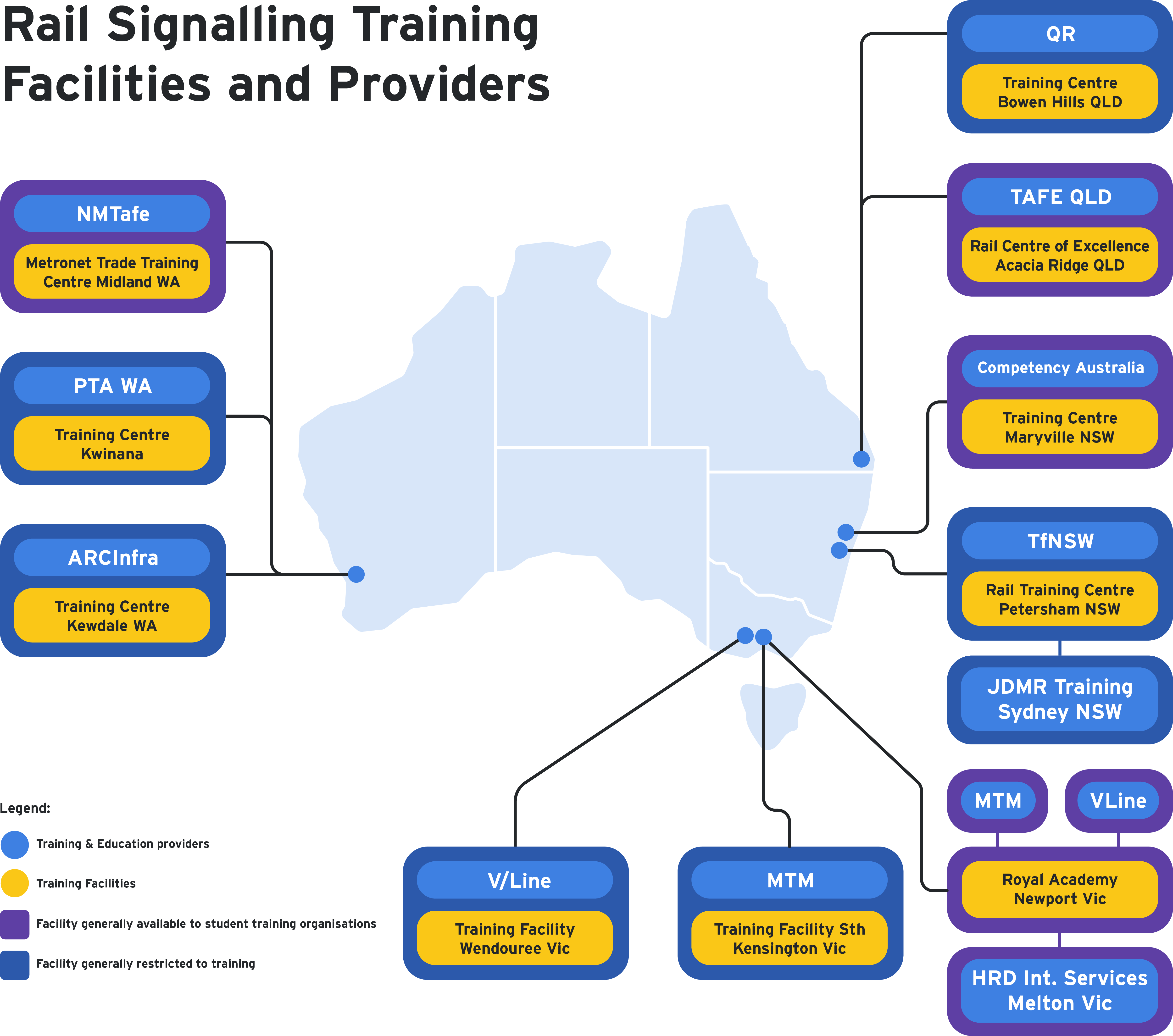Creating nationally recognised skills programs
We're creating industry-led, critical rail skills training programs that are recognised across Australia and meet the needs and timeframes of a modern rail industry.
In partnership with the Department of Employment and Workplace Relations (DEWR) , and with the support of industry, training providers and the Australian Industry Standards (AIS) we have:
- conducted a skills audit
- mapped training pathways
- developed a blueprint for nationally recognised course materials.
Materials for Certificate IV Rail Network Control programs have been completed. These are now available to training providers approved by VET regulators to deliver rail skills training across Australia.
The materials are being hosted on the National Rail Skills Hub platform.
Optimising training pathways
The National Rail Skills Hub has identified potential training pathways and entry points into 30 in-demand rail jobs.
We are now mapping the fastest way for job seekers to navigate these paths and acquire the qualifications needed for the most critical rail roles.
These can be found on our training pathways pages.
The Hub is now working with the Australasian Railway Association (ARA) and Engineering Education Australia (EEA) to promote our findings, fill the training gaps and support the upskilling of the future digital rail workforce.
Developing a model for portable rail skills
The National Rail Skills Hub is developing a national model for harmonising rail skills training.
The first industry-led pilot developing national training products for accreditation to Safely Access the Rail Corridor (SARC), is underway.
The pilot will show how a national approach to developing and delivering entry level rail training courses could work. The program will be authorised by all rail infrastructure managers. Once completed, it will be undertaken by 92,000 rail workers.
Mapping training centres across the country
Public and private sectors organisations are investing in rail education and training. We're mapping the location of existing critical skills training facilities. This will open the way collaboration and sharing and help to maximise future training investments.
The development of maps has been prioritised according to need.
Rail signalling skills have been identified by industry as the most in-demand.
The map below shows training centres across Australia which offer rail signalling courses and qualifications.

Updating signalling training
Rail signalling in Australia is rapidly digitising and will continue to evolve at pace as new global technology is introduced.
Today, signalling engineers and technicians are the two most in-demand roles in rail. Training takes time, is not easy to access and will become even more sought after as existing workers are upskilled to build, operate and maintain the new high-tech European systems.
The National Rail Skills Hub is working with experts from across industry, unions, governments and the education sector to ensure Australia has the signalling skills it needs.
In partnership with the ARA and EEA, the Hub held the first of a series of rail signalling roundtables on 24 October 2022.
More than 55 people from 33 organisations came together to help identify ways to:
- define clearer training pathways
- ensure rail signalling skills are nationally recognised and portable
- make it easier for rail infrastructure managers to assess competencies by linking state-based training facilities and industry resources in rail signalling.
Get involved in the conversation
Throughout these programs we'll be partnering with industry and governments to roll out solutions.
Contact us if you would like your organisation to be part of this.
